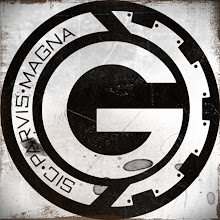Industrial Engineers design systems to enable people and society to improve productivity, efficiency and effectiveness and the quality of the work environment.
All engineers work at planning, designing, implementing and controlling the systems that represent the way people use technology. The systems that are the subject of Industrial Engineering design are broad and are characterized by a need to integrate both the physical and decision making capabilities of humans together with all other aspects of the system design. Problems range from the design of a work method and work station, to the design of a factory layout and methods of controlling the flow of materials on the factory floor, to the design of an overall corporate plan involving materials procurement, production, inventory and distribution. The idea of a factory is also extended to include health care systems, municipal systems, transportation systems; in fact all the systems that are essential to the functioning of modern society. Systems that facilitate effective decision making and implementation in areas such as scheduling, inventory, and quality control are typical of industrial engineering.
An integral part of IE: Designing for People
Human behaviour and capabilities are key element in the systems Industrial Engineers work with. In designing the layout of a production line for an automobile manufacturer, the checkout counter for a supermarket, the organization of office work flow for a bank or the materials handling system for a steel plant, the engineer must consider both physical requirements and cost parameters and the physiological and behavioral performance of the human operators. The Industrial Engineer has a dual role, both to extend human capability to operate, manage and control the overall production system and to ensure the safety and well being of those working in the system.
Design and development of these systems requires the unique background of the Industrial Engineer. The process of engineering always starts with measurement. Where other engineers might measure temperatures, pressures or wind loads, the Industrial Engineer measures the time of a work cycle, dollar values of expenditures, rates of machine failures, and demand processes for finished goods. Usually the mathematical analysis must take into account risk and uncertainty to a larger extent than in other engineering fields. Computer simulation and optimization are often required. The concepts and techniques found in the Industrial Engineering curriculum have been selected to assist the student to develop the skills that meet the specific challenges of systems which involve managerial activities.
The Future of IE
Job opportunities for Industrial Engineers are both challenging and widely based. Former graduates are currently practicing Industrial Engineering in all types of work activity ranging from paper product manufacturing, to airlines, to utilities, to hospitals. Invariably, the work assigned is original in its nature demanding that the Industrial Engineer to be creative in applying his or her many abilities to achieve the best solution. Managers require such results if they are to keep their costs under control in this increasingly competitive world. This requirement will sustain the high demand for Industrial Engineers well into the future.

2 komentar:
nice post !
If we have a degree in industrial engineering later on, maybe some of us who work directlyor proceed to S2. Especially for the immediate work after the bachelor's, certainly before graduating already have an idea of what jobs are matched with Industrial Engineers. Actually, industrial engineering jobs that are very wide. Broadly speaking, the Industrial Engineers engaged in the Organizations and job design, Methods engineering, Facilities design, Performance measurement and control of operations, Engineering economy, Planning dan control, Computers and information systems, Quantitative methods, Quality assurance, Optimization, Ergonomics/Human factors, Evaluation, appraisal, and management of human resources, Manufacturing system engineering, and Maintenance Management Systems. Classically, remembering the birth of Industrial Engineering is to serve the manufacturingsector, the working field of industrial engineering graduate is on the path to Production Officer to the Director. Positions that are often taken regarding QA (Quality Assurance), Business Excellence Team, Standard and Procedure Development Officers and Marketing, Operations Officer to Directors. They are absorbed in the banking, television, telecommunications, information technology, administration, consulting, insurance, energy, hospitals, education and so on. Depending on the industrial engineering graduates to define and interpret their ability towork multisystem, multifunctional and multipendekatan of new industrial sectors. Industrial Engineering, which emphasizes curriculum of this multidisciplinary approach,design capability coupled with a strong engineering background. Engineering backgroundis what strengthens the ability to develop a logical and structured methodologies, comparedwith other disciplines.
Posting Komentar